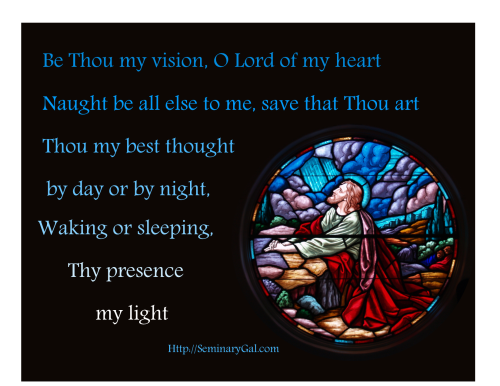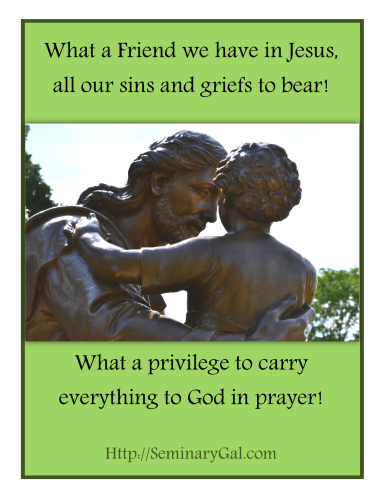Overcomers Speak the Truth.
Jesus never lied. Not even once.
We’re beginning our look at the kind of Kingdom Actions Jesus had–ones that teach us how to deal with sufferings and be Overcomers. 1 Peter 2:22 “He committed no sin, and no deceit was found in his mouth.”
Jesus set before us a high standard of conduct and the ultimate example of what perfect humanity looks like. This is what we aspire to as Overcomers: to speak the truth about everything including suffering, and never fake it for the sake of looking religious to other people, or in order to justify ourselves.
I like watching movies and thinking about them from a theological perspective (which makes me no fun to take out to the movies–we watch them in the privacy of home so I can pause and reflect and be obnoxious to my husband who would probably prefer just to watch the film). In Baby Mama, Kate Holbrook and her surrogate Angie (who is hiding a secret) have a conversation about honesty:
Kate: I don’t want to… This is why I can’t lie to him.
Angie: You’re not lying to him, you’re just not telling him the truth, there’s a big difference.
Kate: Is there?
Lying has become such a huge part of American culture that one might suspect it has supplanted baseball as our national pastime. Its zenith not-so-amazingly coincides with the approaching nadir of Christian discipleship, moral standards, and social ethics. Christians throw up a million defenses so as not to speak the truth…even in love.
What do we do instead?
- We hide from the truth, acting as if truth is as relative as the world tells us it is.
- We may speak boldly and say it’s the truth even when it displays our ignorance because it has absolutely nothing whatsoever to do with what God says is the truth.
- We throw accusations at other people to keep them from speaking the truth we’d rather not hear.
- We beat around the bush and never point out the lies out of fear of being branded (Christian, Evangelical, Zealot, Closed Minded Bible Thumper) or worse being thrust into the pejorative political realm or a specific party (Right-winger, Conservative, Republican, Ditto-Head, Tea Party Patriot) even when the Bible isn’t the GOP Handbook on a wide variety of social, political, and economic issues. Bill Kristol could tell you that one. The truth is Liberals, Progressives, Socialists, Libertarians don’t have the Bible as their handbook either, just ask John Stossel and Bill Clinton.
Blow the dust of the Ol’Bible and we find that Scripture says something about that:
2 Timothy 4:3 For the time will come when men will not put up with sound doctrine. Instead, to suit their own desires, they will gather around them a great number of teachers to say what their itching ears want to hear. 4 They will turn their ears away from the truth and turn aside to myths.
The truth is hard to come by. Much harder to see than lying. Of course everyone is careful not to call lying…lying. It’s called spin, misinforming, disingenuousness, prevaricating, falsifying, misstating, fabricating, mendacity, unreliability, unsubstantiated information, unproven allegations, partisan accusations, misleading statements, or even occasionally being deceitful.
So we develop a huge vocabulary and are no closer to the truth about the situation. Maybe it’s time to honor God, open our Bibles, better yet, read in its pages what truth actually is. Look for standards of conduct the Bible talks about, and start using the word LYING when it applies.
Jesus had no problem with using the word LIAR.
John 8:55 Though you do not know him, I know him. If I said I did not, I would be a liar like you, but I do know him and keep his word.
(Unfair! Jesus was God, you protest?)
Well, neither did the beloved disciple John who used it quite frequently.
1 John 4:20 If anyone says, “I love God,” yet hates his brother, he is a liar. For anyone who does not love his brother, whom he has seen, cannot love God, whom he has not seen.
It doesn’t matter what we call it. God doesn’t want us to do it.
He wants us to speak the truth.
Zechariah 8:16 These are the things you are to do: Speak the truth to each other, and render true and sound judgment in your courts; 17 do not plot evil against your neighbor, and do not love to swear falsely. I hate all this,” declares the LORD.
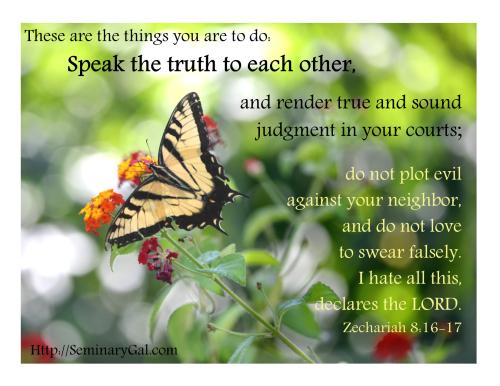 Do you want to be an Overcomer and not be a prisoner to suffering? We need to start by Speaking the Truth and having the kind of Kingdom Actions that expect suffering without spinning it inward to fatalism or victimhood; or spinning it outward by putting a pretty pious but dishonest frame around the suffering we’re going through; and without lying to ourselves and God, living in denial of the truth that suffering hurts but the story doesn’t end there.
Do you want to be an Overcomer and not be a prisoner to suffering? We need to start by Speaking the Truth and having the kind of Kingdom Actions that expect suffering without spinning it inward to fatalism or victimhood; or spinning it outward by putting a pretty pious but dishonest frame around the suffering we’re going through; and without lying to ourselves and God, living in denial of the truth that suffering hurts but the story doesn’t end there.
We need to speak the truth to others and to ourselves in order to be Overcomers.
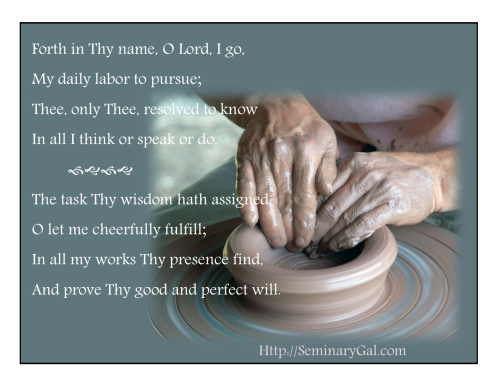

 Did you ever get one of those coded messages in cereal boxes or a coded game as a kid? You’d have to use that special red colored film decoder to see the message hidden on the card? While all the other symbols and markings occluded (there’s a word I haven’t used in forever!) the message, it was revealed by the right filter.
Did you ever get one of those coded messages in cereal boxes or a coded game as a kid? You’d have to use that special red colored film decoder to see the message hidden on the card? While all the other symbols and markings occluded (there’s a word I haven’t used in forever!) the message, it was revealed by the right filter.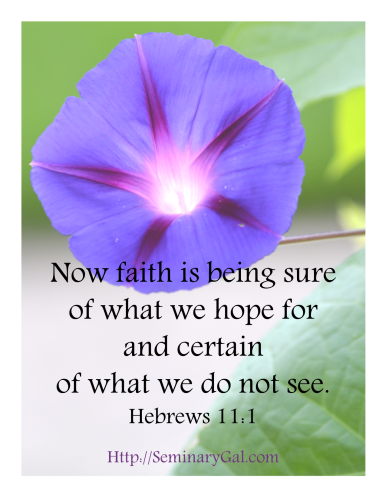 When Jesus used the Visionary Filter, it was because He’d come from the Father. Jesus knew the spiritual realm as being every bit as real as the physical world.
When Jesus used the Visionary Filter, it was because He’d come from the Father. Jesus knew the spiritual realm as being every bit as real as the physical world. Money—if you have enough, you’ll never have to worry ever again. You can provide for yourself!
Money—if you have enough, you’ll never have to worry ever again. You can provide for yourself! I like analogies.
I like analogies. 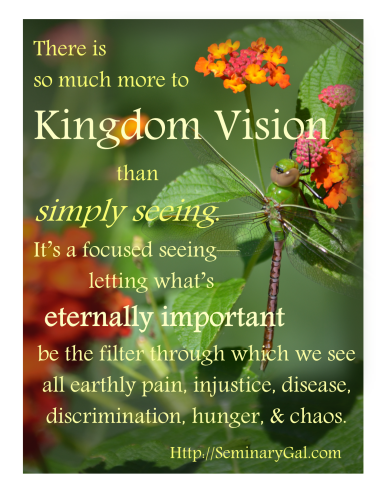 Whew! Doesn’t that seem a bit unfair? Not when we think about it this way: For those who choose to see with Kingdom vision and not just our eyes, Jesus (who is far better than Waldo) is in plain sight. Once you see Jesus, you really do see Him. You know it’s Him. Not just what He maybe looks like among a million manmade messiahs and pretenders in a world of suffering, but you see Jesus. You know Him.
Whew! Doesn’t that seem a bit unfair? Not when we think about it this way: For those who choose to see with Kingdom vision and not just our eyes, Jesus (who is far better than Waldo) is in plain sight. Once you see Jesus, you really do see Him. You know it’s Him. Not just what He maybe looks like among a million manmade messiahs and pretenders in a world of suffering, but you see Jesus. You know Him.